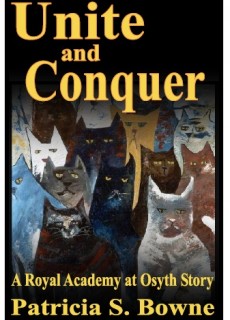One of my FB friends posted a link to this article, Nurses, fathers, teachers, mothers. Why do we devalue someone the minute they care for others? Good question, I thought, and surfed right over. Unfortunately, I found nothing in the article to answer the question. I did find something in the article that made me very uneasy.
Q. You write about how language in our workplace, such as the questions we ask and the labels we use, are actually holding back our progress. What is some of the worst language we need to ditch and replace?
A. We should get rid of “stay-at-home mom” and “stay-at-home dad.” I find that to be very offensive. It says that the place you’re supposed to be is the workplace. If you’re at home, you need an adjective.
We should also talk about “working fathers” as well as “working mothers,” right? We constantly say a woman has two jobs: She’s working and she’s a mother. But we don’t say that about men. We need to make clear that they have a dual identity the same way women have a dual identity.
And let’s get rid of the word “help.” Let’s stop saying, “My husband helps”—because that is really saying, “It is my job to run the household, but he helps me do it.” No, no, no, no, no.
What made me uneasy was how normal this discussion seemed. It’s one of the routine questions, isn’t it? Whenever somebody has reached a conclusion that something needs to change nowadays, the question of language comes up. Let’s change the terms people are allowed to use, and we’ll change the way they see things.
I’m old enough to have first encountered this idea in the work of George Orwell and in scare articles about Chinese communism – both of which agreed that it was immoral to manipulate people by changing the language they were allowed to use. It was brainwashing, propaganda. A free people should resist it.
Yet isn’t the free people in question simply insisting on using the language they were brainwashed into before they knew brainwashing existed? Just because somebody did things to you before you knew enough to object doesn’t make them excusable. The language my parents taught me is not intrinsically more ethical than the language the article quoted above wants me to use.
In addition, changing people’s language may be the only way to introduce them to a new paradigm. When I was reading Richard Rorty and Bruno Latour, there was no point at all in requiring that they translate their reasoning into terms Popper would have used. I needed to struggle with the terms they were using until I understood, so far as I could, what they were aiming at in their own paradigm. That was the only way for me to expand my knowledge. I lead my students through the same kind of struggle when I introduce a new framework, even when it’s something as apparently innocuous as the concepts of complications or adaptation. I insist they learn to use my terms. I outlaw terms in the classroom that I deem more confusing than helpful, like ‘blood thinners’ – even when those are the terms the patients will use. What am I trying to do to my students’ thinking?
My bias, I will admit, is toward expansion. I am very forgiving of someone who adds a new worldview to somebody’s toolbox, or replaces a single term with many terms (this is how I finesse the ‘blood thinner’ issue), and very unforgiving of someone who tries to narrow people’s options by outlawing the key terms of a certain worldview.
Nowadays, manipulating people by changing the language they are allowed to use is part of everybody’s toolbox. Merely questioning it probably puts me in the ‘right-wing reactionary’ column. But I have not seen anything explaining why it is not immoral to narrow people’s ranges of response – of thought – by restricting their language. And it’s especially egregious coming in the middle of an article that asks why people think something. If you take away the words people are using to express their thoughts, how are they ever going to tell you why they think the way they do?
I believe that if we decide to understand people we disagree with we must do it in their own terms, even if it means immersing ourselves in paradigms we disapprove of and words that offend us. Refusing to do so is like refusing to learn the language of the culture you’re studying. Suppressing key terms is like outlawing the use of a culture’s language, and then thinking you can learn the truth about the culture anyway.
I realize this is a personal preference, based largely on the fact that other people’s cultures don’t threaten me. My attitude is a mark of moral unseriousness, privilege, and general frivolity. But all those terms describe me pretty well, and I won’t outlaw them.









